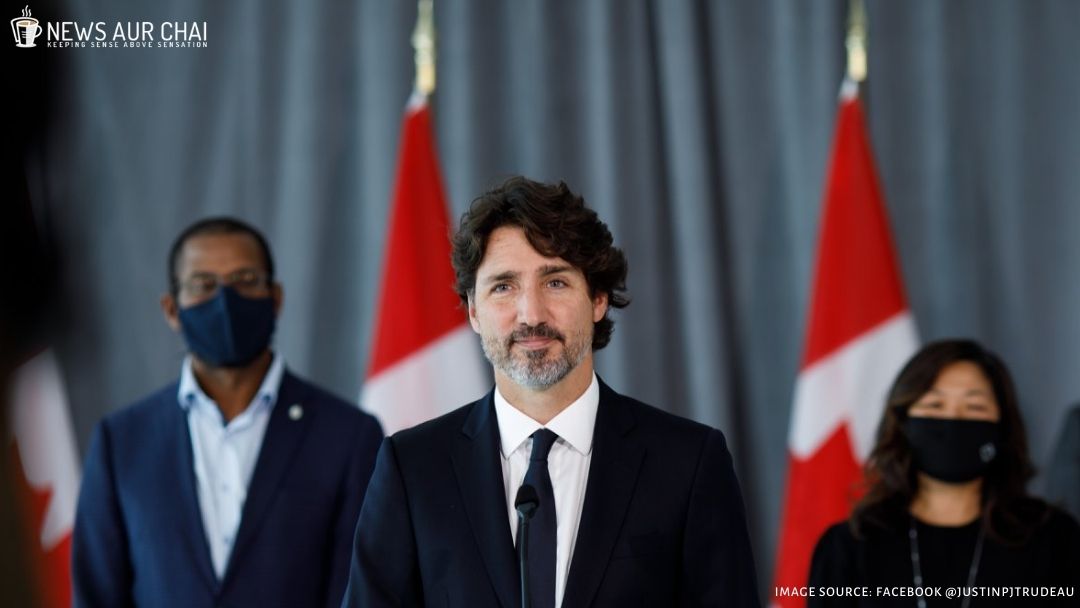
Indian authorities criticized Canada’s Prime Minister Justin Trudeau comments on ongoing farmer’s protest at New Delhi. The stand comes to the support of farmers. However, Indian is a sovereign nation, and Canada’s remarks are perceived as interference in internal issues.
The farmer’s protest has attracted attention from all over the world. The Canadian Prime Minister Justin Trudeau became the world first leader to publicly comment on the ongoing farmers protest at New Delhi in a virtual address to the Sikh community on the occasion of Guru Nanak Jayanti and extended his support to the farmers protesting at the Delhi-Haryana borders.
The Canadian Prime Minister extended his support and said that the ongoing agitation against the farm’s bills was ‘concerning’ and that Canada will “be there to defend the rights of peaceful protest”.
New Delhi reacted sharply to the ‘concerning’ remarks of the Canadian Prime Minister, and called them “ill-informed”. Ministry of external affairs India further asserts “Such actions, if continued, would have a seriously damaging impact on ties between India and Canada.”
Despite the warning by Ministry of external affairs India, Canada PM Trudeau reiterates his words on Friday “Canada will always stand up for the right of peaceful protest and human rights.”
Farmer’s protest:
November 2020 ends with the farmers from Punjab and Haryana protesting against a set of three laws passed by the central government. Farmers have taken the streets in one of the massive protests India witnessed in recent years.
The farm bills concern with market regulation of produced crops. It eases the existing rigid farm laws, by regulating trade outside of government’s Mandi (market place).
Responding to the farmer’s agitation, Prime Minister Narendra Modi said that the laws will “liberate” the farmers and will free them from the bullying middlemen. The farmers, however, lay more faith in middlemen and fear exploitation from big corporations.
Dual stance of PM Justin:
The remark by the prime minister of Canada opens a plethora of debates and reflects the hypocrisy of the leader. The Canadian Prime Minister is “concerned” about the farmer’s protest on agricultural issues to which Canada has consistently opposed India at the World Trade Organization (WTO).
Canada, along with the US, Japan and Australia have challenged India at WTO meetings on its agricultural programmes like the minimum support price (MSP) for staple crops such as rice, wheat and pulses.
Furthermore, in July this year, Canada alongside the other countries pointed out India on exceeding the permitted limit on food subsidies given for the production of rice — called de minimis levels under WTO norms to the farmers in 2018–19. The de minimis level is inferred at 10 per cent of the value of food production.
The concerns of Canada for the farm’s subsidies and policies have been relatively consistent as Canada has lately sent a list of 25 questions to India with regards to farm subsidy, followed by an explained version of the impact of such food subsidies on global agricultural trade.
So, in a nutshell, Trudeau’s government concerns reflect hues of hypocrisy as the Indian farmers are protesting for the demands which his government is long opposing at WTO.
Influencing Sikh majority:
The Trudeau government dual nature can be thus understood by the distribution of seats in his cabinet. It is no mystery that Sikhs are the dominant ethnic group in the eight seats of the House of Commons in Canada. It is also a significant minority group in 15 other seats which holds the capability to change the scenes during the elections. And Trudeau has to be in good books of the minorities in Canada to win these seats.
Furthermore, the Trudeau government has more Sikh ministers in his cabinet than the Indian government itself, which entirely justifies the political strategy of the ‘concerned’ attitude of the leader. Furthermore, India is a sovereign country and needs no interference in handling and administering internal issues and which has also been clearly put forth by India and in the latest move has summoned the Canadian envoy over PM Trudeau’s remarks.
India’s Response:
“We have seen some ill-informed comments by Canadian leaders relating to farmers in India. Such comments are unwarranted, especially when pertaining to the internal affairs of a democratic country.” India’s Ministry of External Affairs (MEA) spokesperson Anurag Srivastava said.
The protestors are peacefully demanding their rights by practising their democratic right to protest, and rounds of discussions are being held between representatives of government and farmers. The Centre indicated to evaluate measures such as equal taxes for APMC mandis and private markets, private traders’ registration and permitting higher courts of appeal in contract farming disputes.





